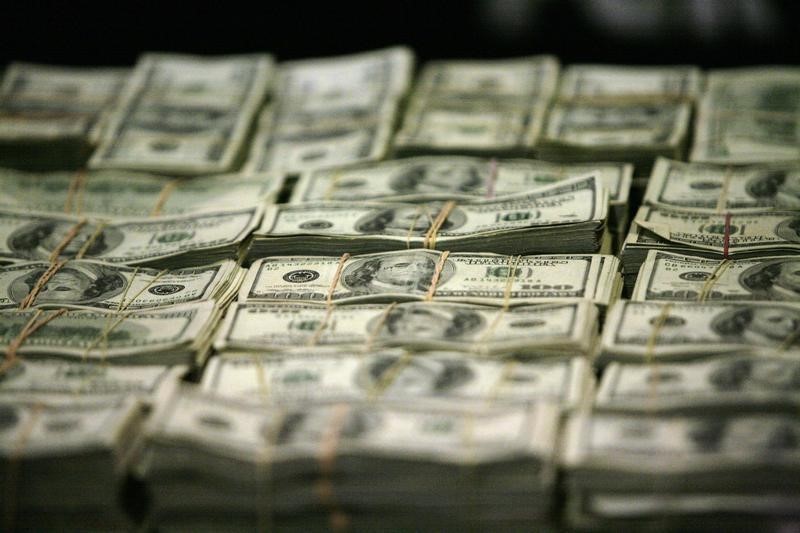Investing.com - The dollar was broadly higher against a basket of other major currencies on Monday, as demand for the greenback was boosted by Friday's U.S. fourth-quarter growth report as well as comments by Federal Reserve Chair Janet Yellen.
The dollar strengthened broadly after the Commerce Department reported Friday that the U.S. economy expanded at an annual rate of 2.2% in the fourth quarter, unchanged from the preliminary estimate and below economists’ forecasts for an upward revision to 2.4%.
In addition, Fed Chair Janet Yellen said in a speech on Friday that a rate hike may be warranted later this year, but added that weakening inflation pressures could force the Fed to delay.
Ms. Yellen said policy tightening could "speed up, slow down, pause, or even reverse course" depending on how the economy is performing.
The U.S. dollar index, which measures the greenback’s strength against a trade-weighted basket of six major currencies, was up 0.38% to 97.99.
EUR/USD slid 0.41% to 1.0845.
Greece remained in focus after Prime Minister Alexis Tsipras’ government put forward new reform plans for approval late Friday, as part of a bailout extension review.
Officials from the European Union, the International Monetary Fund and the European Central Bank were to examine the measures after earlier proposals were not accepted.
Earlier Monday, official data showed that consumer prices in Spain fell 0.7% this month, compared to expectations for a decline of 1.0%, after a 1.1% decline in February.
The pound was also lower, with GBP/USD down 0.41% to 1.4832.
In the U.K., the Bank of England said on Monday that total net lending to individuals increased by ₤2.5 billion last month, meeting forecasts and up from ₤2.4 billion in January.
In another report, the central bank said U.K. mortgage approvals rose to a six-month high last month, indicating that the housing market is picking up.
Elsewhere, the dollar was higher against the yen and the Swiss franc, with USD/JPY climbing 0.47% to 119.70 and with USD/CHF rising 0.24% to 0.9647.
The KOF Economic Research Agency earlier reported that its index of 219 economic indicators for Switzerland inched up to 90.8 this month from a reading of 90.3 in February. Analysts had expected the economic barometer to dip to 89.1 in March.
Also Monday, preliminary data showed that Japan's industrial production dropped 3.4% in February, exceeding expectations for a 1.8% fall, after a 3.7% increase the previous month.
The Australian, New Zealand and Canadian dollars were broadly weaker, with AUD/USD tumbling 0.98% to 0.7680 and NZD/USD retreating 0.48% to 0.7527, while USD/CAD added 0.14% to 1.2625.
